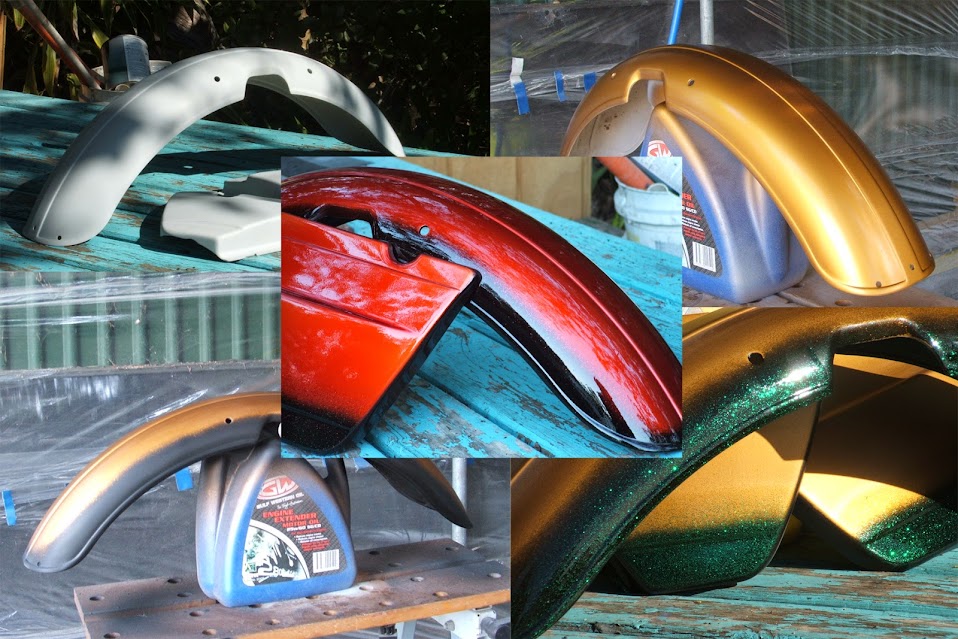Haha, thanks Major.
It might look a nice colour, shinny -n- all... but in person it really does not cut the mustard. The flaws are numerous and the finished colours are not what I desire.
I sort of rushed my self trying to make the best of the warm and dry weather that week.
Layer 1 - Unlike the gloss black of the frame, micro pin holes in the primer stand out like dogs balls under the metallic gold & candy red clear.
Solution = more & better detailed inspection during prep.
Layer 2 - Premature sanding of the gold left unremovable scuff marks.
Solution = Double the curing time for gold & use a finner grade sand paper, 1000grit.
Layer 3 - The matt black underside's & edging... well that was a total cockup !
I used the wrong spray nipple size, wrong mixing / thinning ratio, wrong spray pattern's, wrong air pressure, wrong time of day (rushed it in late in arvo being overly eager)... then it sanded like shit in the morning because of the previous 'wrong' ... yep, a total cockup.
Solution = Pay attention this time and do it properly

Layer 4 - Followed the mix recommendations for the green but it was no where near enough, requiring far to many coats to get less than 30% of desired colour depth... thus leaving a very 'thick edge' drop to the gold subsurface, which then stands out like kangacrap after the final layer ...
Solution = Quad damage dose of green on next mix... I think a different spray nipple size than I used will also benefit greatly.
Layer 5 - Again, followed mix instructions for the candy red ... and got the same pale result, also requiring far to many coats to get some colour happening... also used the wrong spray pattern creating some lovely 'tiger stripes' to the colour density.
Far to many coats creates an 'orange peel' surface texture that is built upon with each coat, while you can sand & buff the surface to a bowling ball smooth finish.. the orange peel ripples are still evident within the colour depth.
Solution = Quad damage dose of candy red on next mix & wider spray pattern with broader overlap of passes.
Yes, no one can be a harsher critic than oneself.
